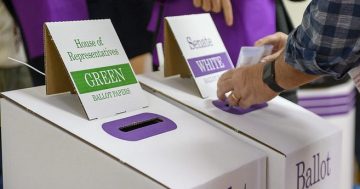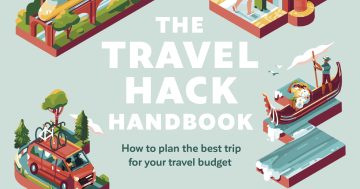Laura Stack* says the very act of making thousands of little decisions each day can tire us out, so we need to cut back and be ready when the really important ones arrive.
 By some estimates, the average worker makes 35,000 decisions during their work day.
By some estimates, the average worker makes 35,000 decisions during their work day.
They include what to wear and eat, the type of latte to buy at Starbucks, and whether to open a new tab on your browser or check email.
Every click is a decision.
According to some experts, you start the day with only so much ability to decide.
Once you get below a certain level of ‘ego depletion’, you reach ‘decision fatigue’.
At first, researchers thought this was purely a mental effect, but as with the commercials, where someone turns from a mean grouch into a cool character after eating a Snickers bar, other research has convincingly linked decision fatigue to your level of the brain’s favourite energy source: Glucose.
Here’s how to avoid sabotage by decision fatigue.
Make important decisions early in your day:
This is when you still have plenty of decision fuel.
Note that this is different from ‘eating the frog’; it’s more like deciding whether you’re going to eat the frog.
Minimise trivial choices:
Don’t make the mistake of treating minor decisions as important.
Refuse to agonise over what type of tea or salad dressing to have.
Otherwise you’re wasting glucose and depleting your ego supply.
If it’s no big deal or you always do the same thing, make a snap decision.
Take longer for decisions that matter. Get used to making small decisions quickly.
Avoid any wealth of choices:
I think of this as ‘the tyranny of choice’ — you have so many options it’s hard to choose just one.
Like a bookworm in a bookstore, where do you start?
When feeling overwhelmed by choices, you might as well catch a tiger by the toe and pick whatever comes up on ‘moe’, especially if the choice is trivial.
If it’s important, take longer; however, remember you can usually still fix it later, so don’t take too long. Act with urgency.
Rely on routines:
Over time, most of us develop routines for common tasks that let us go on automatic.
This can be the route we take to work each morning, the order in which we do our tasks, how we check and write our emails, or where we park at the mall or airport.
After a while, we become so familiar with our routines we don’t have to think about them or make any decisions, so we conserve our decision fuel without even trying.
If I can’t find a parking spot in my normal spot, I have to take a photo; if I’m in my regular area, I just know I’ll be there and don’t need to do anything.
Decrease the number of decisions you make:
Former US President Obama once told Vanity Fair he exclusively wore blue and grey suits just to cut one less decision from his daily schedule.
Facebook’s Mark Zuckerberg also wears the same type of clothing every day, as did Albert Einstein and Steve Jobs.
Other people eat the exact same meals each day, so they never have to worry about that cluster of decisions.
You can apply this to just about any decision, major or minor; it works especially well when combined with routines.
Get plenty of rest:
As always, sleep is vastly important.
The better you feel in general, the better you are at resisting any sort of fatigue, including decision fatigue.
Although sleep is generally what suffers when we need extra time for other things, it’s best to get seven-to-eight hours nightly.
Eat or drink something containing glucose:
This can top up your decision-making level, putting you back at the top of your game.
A simple glass of sugary lemonade works well.
Don’t use an artificial sweetener, or even something sweetened with corn syrup, like your average soda; it won’t work as well.
Eating a snack can also help because it offsets hunger or some protein to boost energy, which stimulates the production of the hormone ghrelin, which decreases impulse control, giving you better decision-making abilities.
Decision fatigue may not sound like such a big deal at first, but its effects can be profound.
Consider this: Studies of parole board decisions demonstrate that decision fatigue is more likely than prisoner behaviour, prisoner psychology, or length of time in jail to determine whether or not a prisoner gets parole.
About 65 per cent of those who face parole boards in the morning receive parole, while only 10 per cent of those who face them later in the day get it.
By then, it’s easier for the board members to just say no than to give each case individual consideration.
Don’t let decision fatigue damage your life — or anyone else’s.
*Laura Stack is a keynote speaker, author and authority on productivity and performance. She has written seven books, including her newest Doing the Right Things Right: How the Effective Executive Spends Time. She can be contacted at theproductivitypro.com.
This article first appeared on Laura’s blogsite.











